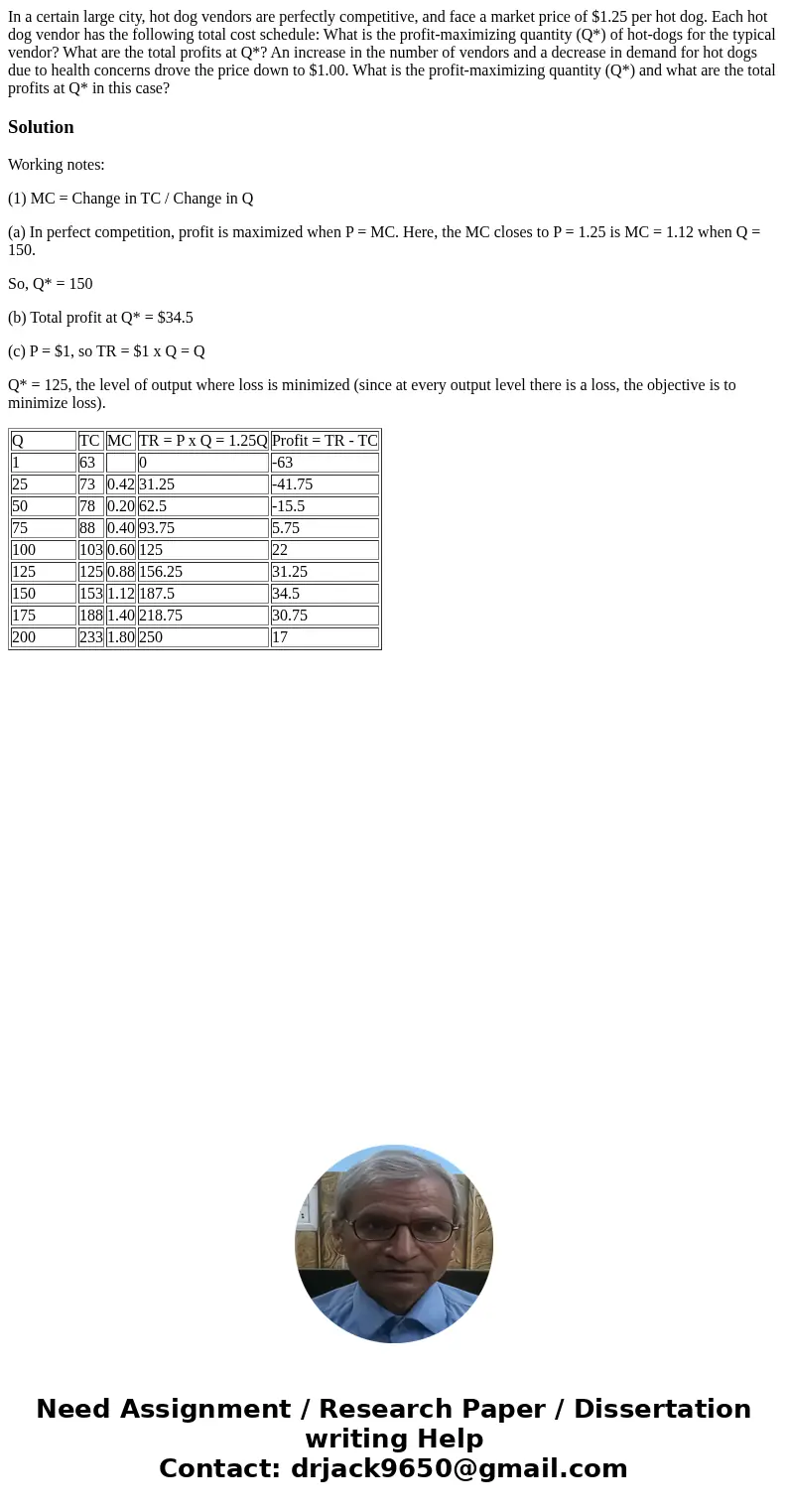In a certain large city hot dog vendors are perfectly compet
In a certain large city, hot dog vendors are perfectly competitive, and face a market price of $1.25 per hot dog. Each hot dog vendor has the following total cost schedule: What is the profit-maximizing quantity (Q*) of hot-dogs for the typical vendor? What are the total profits at Q*? An increase in the number of vendors and a decrease in demand for hot dogs due to health concerns drove the price down to $1.00. What is the profit-maximizing quantity (Q*) and what are the total profits at Q* in this case?

Solution
Working notes:
(1) MC = Change in TC / Change in Q
(a) In perfect competition, profit is maximized when P = MC. Here, the MC closes to P = 1.25 is MC = 1.12 when Q = 150.
So, Q* = 150
(b) Total profit at Q* = $34.5
(c) P = $1, so TR = $1 x Q = Q
Q* = 125, the level of output where loss is minimized (since at every output level there is a loss, the objective is to minimize loss).
| Q | TC | MC | TR = P x Q = 1.25Q | Profit = TR - TC |
| 1 | 63 | 0 | -63 | |
| 25 | 73 | 0.42 | 31.25 | -41.75 |
| 50 | 78 | 0.20 | 62.5 | -15.5 |
| 75 | 88 | 0.40 | 93.75 | 5.75 |
| 100 | 103 | 0.60 | 125 | 22 |
| 125 | 125 | 0.88 | 156.25 | 31.25 |
| 150 | 153 | 1.12 | 187.5 | 34.5 |
| 175 | 188 | 1.40 | 218.75 | 30.75 |
| 200 | 233 | 1.80 | 250 | 17 |

 Homework Sourse
Homework Sourse